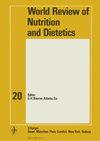Energy: life, power, and livelihood
4区 医学
引用次数: 0
Abstract
We and our habitat are forms of energy, endowed with life, and irrevocably earthlings. A cosmological-to-locality appreciation of energy in food and nutrition science, practice and policy is overdue. Our livelihood, and any function we have, are energy dependent, as is planetary habitability. Energy cognisance has become an existential necessity in an increasingly self-destructive ‘anthropocene’ era when our own energy equilibrium is compromised. This is manifest in destruction and loss of our ecology, our livelihood expectations, and practices, and, in turn, our wellbeing and health. Most problematic has been the domination, skewing and loss of biomass caused by humans, both their over-population of the earth, and their exploitation of its natural resources. These resources provide fuel for warmth, cooking and transport, textiles, and clothing; are subject to land and aquatic harvest, are replaced by dwellings and infrastructural buildings, and yet are recreational assets. Wastage has been of scant regard. Energy misuse besets the entire food system. This has followed the development of the wood and coal-fired steam engine, the advent of gasoline powered internal combustion engines, use and transmission of electricity, and an insatiable arms industry. Now, we are at the brink of extinction. Profiteering and conflict over energy control has fostered unfettered industrial materialism, a major extinction risk factor. Not only is energy the power we need, but it has also underwritten the powerful. Can we be sufficiently insightful and collaborative to change this energy trajectory and survive healthfully on a habitable planet? Individuals, households, and communities, as opposed to unaccountable monopolies, could achieve control of the energy systems on which our livelihoods depend and render them sustainable, accessible, and affordable. Interconnected food and energy system ownership could be devolved to ‘The Commons’ as a cooperative, sustainability strategy. The social momentum and appropriate technology for energy conservation, renewability and personalisation is now available for mobilisation to address our food, nutrition, and health insecurity.能量:生命、力量和生计
我们和我们的栖息地是能量的形式,被赋予生命,是不可逆转的地球人。在食品和营养科学、实践和政策中,从宇宙到地方的能量评价是姗姗来迟的。我们的生计和我们的任何功能都依赖于能源,就像地球的可居住性一样。在一个自我毁灭的“人类世”时代,当我们自己的能源平衡受到损害时,能源认知已经成为一种生存的必需品。这表现在我们的生态、我们的生计期望和实践,以及我们的福祉和健康的破坏和丧失。最严重的问题是由人类造成的生物质的支配、扭曲和损失,包括地球人口过剩和对自然资源的开采。这些资源为取暖、烹饪、运输、纺织品和服装提供燃料;受到土地和水生作物的影响,被住宅和基础设施建筑所取代,但仍是娱乐资产。浪费一直没有得到足够的重视。能源滥用困扰着整个食品系统。随之而来的是木材和燃煤蒸汽机的发展,汽油内燃机的出现,电力的使用和传输,以及永不满足的军火工业。现在,我们正处于灭绝的边缘。暴利和能源控制的冲突助长了不受约束的工业物质主义,这是一个主要的灭绝风险因素。能源不仅是我们所需要的力量,而且也是强大力量的基础。我们是否有足够的洞察力和合作来改变这种能量轨迹,并在一个可居住的星球上健康地生存?个人、家庭和社区,而不是不负责任的垄断,可以实现对我们生计所依赖的能源系统的控制,并使其可持续、可获得和负担得起。相互关联的粮食和能源系统的所有权可以作为一种合作的、可持续的战略下放给“公地”。节约能源、可再生能源和个性化的社会动力和适当技术现在可以动员起来,以解决我们的粮食、营养和健康不安全问题。
本文章由计算机程序翻译,如有差异,请以英文原文为准。
求助全文
约1分钟内获得全文
求助全文
来源期刊

World review of nutrition and dietetics
Nursing-Nutrition and Dietetics
自引率
0.00%
发文量
114
期刊介绍:
Volumes in this series consist of exceptionally thorough reviews on topics selected as either fundamental to improved understanding of human and animal nutrition, useful in resolving present controversies, or relevant to problems of social and preventive medicine that depend for their solution on progress in nutrition. Many of the individual articles have been judged as among the most comprehensive reviews ever published on the given topic. Since the first volume appeared in 1959, the series has earned repeated praise for the quality of its scholarship and the reputation of its authors.
 求助内容:
求助内容: 应助结果提醒方式:
应助结果提醒方式:


